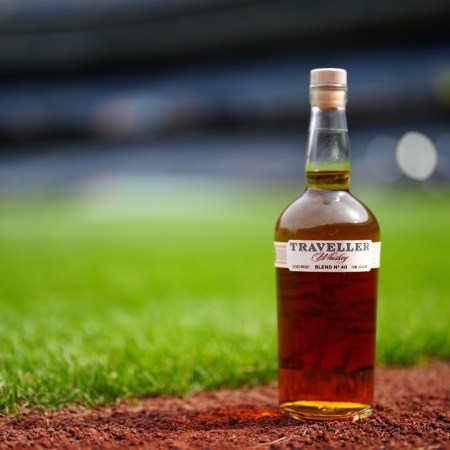When I first saw the video of Max Scherzer losing his mind while umpires examined his glove in Los Angeles, during a New York Mets game against the Dodgers on April 19, I thought the ace might’ve been ejected for aggressively foul language. He hasn’t earned his nickname “Mad Max” for nuthin’. This is the guy who once threatened to strip on the mound when umpires repeatedly checked his person for “sticky stuff” multiple times in a game, so the thought of Scherzer dropping multiple f-bombs was certainly not out of the question.
Reportedly, he did drop at least one, which is often grounds for ejection, but in fact he was thrown out for using a foreign substance.
Yesterday, MLB announced he has been suspended for 10 games and fined an undisclosed amount. He’s still arguing about it, though.
Umpires told Scherzer during the game on two occasions — the second time after they gave him a chance to wash off whatever substance was on his hands and glove — that his pitching hand and glove were “too sticky.” Scherzer has since said he swore on the life of his kids that the substance was a legal combination of the powdery substance rosin and sweat, and that he’d have to be “an absolute idiot” to have done anything different after umpires had already warned him. Regarding the “too sticky” remark from umpire Phil Cuzzi, one of the two who judged Scherzer’s glove and throwing hand, yesterday Scherzer said, “I understand where Phil’s coming from, but this is bigger than Phil — saying how is the rule being applied?”
MLB Tightening Up Policy on Sticky Substances to Stop Pitchers Cheating
It seems pitchers found ways to circumvent the checks umpires were administering late in the 2021 seasonScherzer’s agent, Scott Boras, an unlikely source of sensical talk given his penchant for bombast, especially on behalf of his clients, backed up and expanded on Scherzer’s take in remarks to ESPN. “No one can explain what is too sticky,” Boras said. “There are no units of stickiness to quantify. How do you appropriately enforce? MLB attempts to level the playing field by using standards that are not measurable. Further, one umpire has a stickiness standard that is different than all other umpires.” Comparing umpires to “a local wine taster” he may or may not know, Boras said, “he likes what he likes,” and added: “Under this standard, players are not given due process of how to use an approved substance provided by the league.”
Reporters and Scherzer himself have also pointed out that with advanced technology allowing pitch spin-rate measurements to occur in real time, in-game comparisons to past performances can be made to judge whether or not a pitcher is throwing extra-effectively on a given day, or even a given inning, perhaps with the help of a banned substance. Scherzer’s spin rates against the Dodgers appear to have been consistent with those in recent games he’s pitched.
Give Scherzer a lie-detector test and ask him if he cheated, and I’ll bet he passes it. But of course the hitch with polygraph results is: It’s not a lie if the person taking the test believes what they’re saying is the truth.
After an investigation, MLB still thinks he broke the rules. In a statement announcing Scherzer’s suspension and fine, the league said: “Based on the umpires’ training to detect rosin on a pitcher’s hands, they concluded that the level of stickiness during the fourth inning check was so extreme that it was inconsistent with the use of rosin and/or sweat alone. Both umpires reported difficulty removing the substance from their own hands for multiple innings afterward.”
Everybody in baseball — league officials, pitchers and hitters — wants MLB pitchers to have good grips on the baseballs they throw around 100 miles-per-hour. That means fewer concussions and broken ribs, and more strikes that hitters can handle with their bats. MLB is also developing a new baseball equipped with a tacky feel, which could put an end to this type of problem as it creates built-in consistency.
However, there is an unclear line as to when pitchers exhibit too much control. When does a good grip turn into an unfair advantage? When do sliders break so well that no hitter could possibly have a chance to hit it?
The umps in L.A. and MLB think Scherzer crossed that line. So do some NYC sports talk radio hosts.
“Don’t tell me that Max Scherzer wasn’t trying to cheat,” said Brian Tierney on WFAN. “I don’t even care if he’s trying to find an edge. But let’s not be disingenuous here. There has been a pretty obvious decrease in velocity over the past five years…his fastball is not quite what it was, which means the soft stuff isn’t as effective, because the variance isn’t as great.”
Others have pointed out that this incident is just the latest in a series of concerning events surrounding Scherzer, whom the Mets are paying more than $43 million a year with the hopes he’ll help them win a World Series for the first time in nearly 40 years.
“This is a Met pitcher, a highly-paid Met pitcher who has been very inconsistent since the end of last year and the beginning of this year,” said Boomer Esiason over those same airwaves. “Now this, the back problem, the moving him around, it’s becoming so drama filled. Everything around him.”
The Athletic’s writer Ken Rosenthal also sees the need for corrective measures — legal ones — in Scherzer’s game if the Mets are going to get their money’s worth.
“A memo the league sent to all 30 clubs in spring training, detailing a more aggressive crackdown on sticky stuff, made clear that rosin in certain instances would qualify as an illegal substance,” Rosenthal wrote yesterday. “Scherzer said after he washed his hand, he applied rosin and grabbed sweat before going back out to the mound. The only approved rosin bag, however, is the one umpires inspect before the game and is brought by the game compliance officer to the mound. Any rosin Scherzer used in the tunnel would not have been approved.”
In short, Rosenthal added: “Scherzer needs to get it together, or the $358 million Mets will be in quite a predicament.”
The Charge will help you move better, think clearer and stay in the game longer. Subscribe to our wellness newsletter today.



















